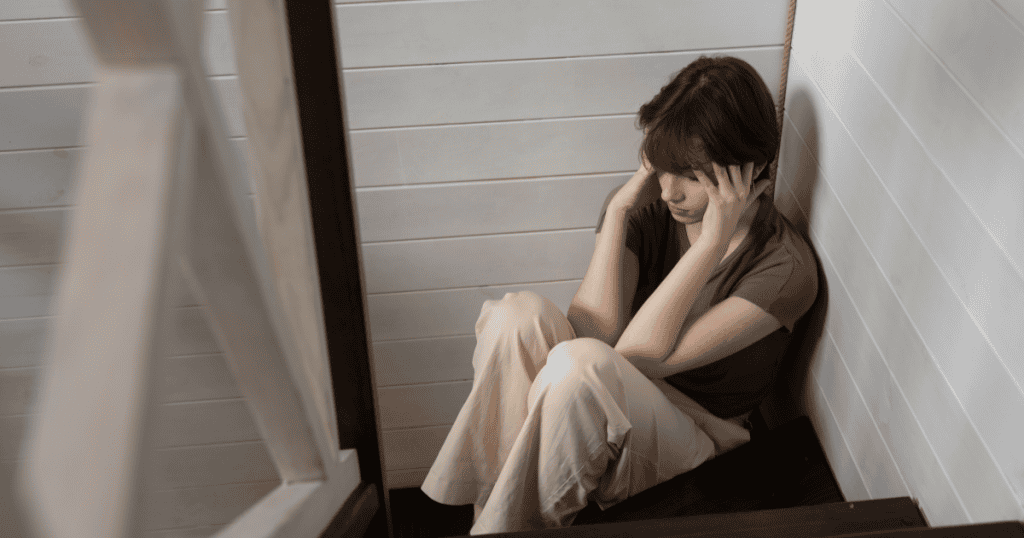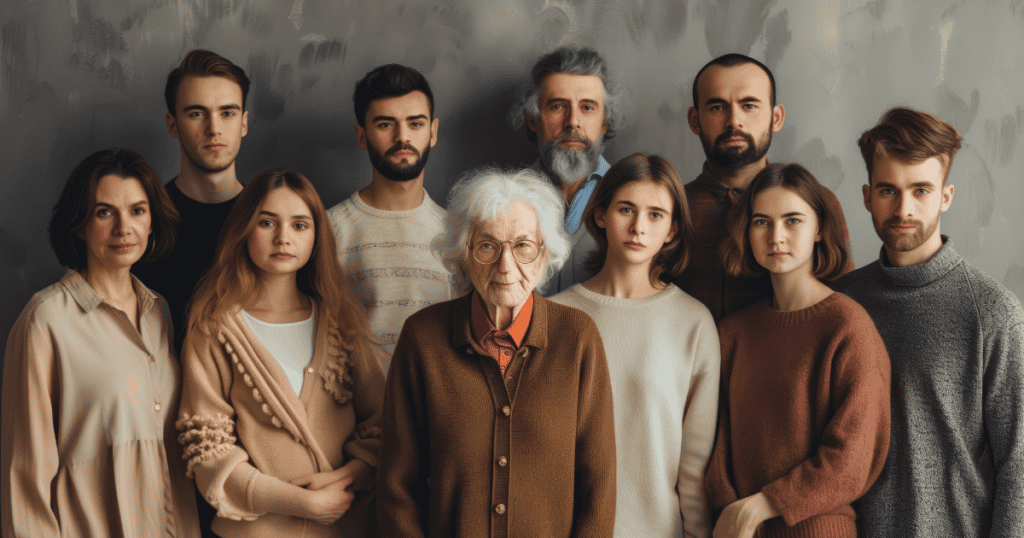For many survivors of abuse, the pain doesn’t come only from one cruel person.
It comes from the silence, excuses, and defense of an entire family system.
Families often close ranks, shielding the abuser while turning their hostility toward the truth-teller.
What hurts most isn’t just the abuse itself, but the moment you realize your siblings, parents, or relatives would rather protect the “family image” than protect you.
I remember sitting in the living room as my mother dismissed my brother’s sharp cruelty as if it were nothing.
I looked around, expecting someone to acknowledge the harm.
Instead, I saw nods and justifications, as though his behavior was natural, even excusable.
That was the day it hit me that everyone saw it, but they had already chosen their side.
This is where the concept of collective narcissism becomes crucial.
Research shows that when a group’s identity depends on fragile pride, its members will defend that image at all costs.
Sometimes, that even means scapegoating their own.
In families, this translates into protecting the “family name” while punishing the one who dares to speak the truth.
Understanding this lens explains why entire families so often rally around an abuser, leaving survivors blindsided and alone.
Table of Contents
What Collective Narcissism Actually Means

Collective narcissism happens when a group builds its identity on fragile pride, needing constant defense and validation.
Unlike healthy family pride, this version is defensive, hypersensitive, and easily threatened.
The group’s worth hinges not on truth or connection, but on appearances.
In dysfunctional families, this often looks like protecting the “family name” at all costs. The priority isn’t well-being, but image.
Survivors quickly learn that honesty comes with punishment.
Speaking up about cruelty gets twisted into betrayal.
You’re no longer a child asking for fairness. You’re suddenly the one “tearing the family apart.”
I felt this shift the first time I tried to describe how my toxic sister’s mocking words left me in tears.
Instead of comfort, I was told by relatives to “be tougher” and “stop making problems.”
It was clear that her behavior wasn’t the issue. My voice was.
Studies show that when a group’s image feels threatened, collective narcissism predicts retaliatory hostility toward whoever raised the concern.
In family terms, this means siding with the abuser while casting the truth-teller as the problem.
It’s all done in the name of “keeping the family together.”
Group Pride as a Shield
One of the clearest signs of collective narcissism is when narcissistic families defend abuse as a form of “protecting the family.”
Instead of seeing harm for what it is, they reframe cruelty as quirks, temper, or “just the way he is.”
The family’s pride acts like a shield, deflecting truth and keeping outsiders from questioning what’s really happening inside.
I remember a narcissistic family member, my aunt, brushing off my mother’s harsh outbursts.
She would say, “That’s just her way of showing she cares. Don’t take it so seriously.”
I sat there stunned, knowing the sting of her words, yet watching her twist the narrative into something acceptable.
In that moment, I realized the focus wasn’t on whether her actions were right or wrong, but on keeping the family’s story intact.
Collective narcissism thrives on this kind of image management.
The family convinces itself that defending the abuser is the same as defending the family.
And in that defense, anyone who challenges the shield is treated as an enemy.
The Scapegoat Effect

Collective narcissism doesn’t just defend the abuser. It demands a sacrifice.
To preserve the system, someone has to carry the blame, and that role almost always falls on the truth-teller.
The survivor becomes “the problem,” not because they caused harm, but because they dared to expose it.
One time, I confronted my narcissistic brother after he mocked me in front of relatives.
Instead of holding him accountable, the room shifted against me.
My aunt muttered that I was “too dramatic,” while my self-absorbed sister accused me of “trying to destroy the family mood.”
In seconds, his cruelty was erased, and I was cast as the villain.
Research shows this isn’t accidental.
Collective narcissism predicts attributing hostile intent to those perceived as outsiders, fueling punishment and hostility toward them.
Translated to the family scale, this means the abuse survivor is painted as malicious when all they did was tell the truth.
The scapegoat effect keeps the abuser safe and the family’s image untarnished.
It leaves the survivor isolated under the weight of a lie they never created.
Why Families Close Ranks Around the Abuser

When a family operates like a collective narcissistic group, criticism is treated as a direct threat.
Loyalty becomes the highest value, and truth is seen as betrayal.
Even gentle confrontation feels like disloyalty because it cracks the polished façade that the toxic family works so hard to maintain.
I learned this the hard way after quietly suggesting to my sister that my narcissistic mother’s harsh words were out of line.
Instead of reflection, she snapped that I was “turning against the family.”
It made it clear that they weren’t interested in truth, only in preserving its storyline.
A field review shows that collective narcissism reliably predicts hostility beyond normal family pride.
It isn’t love of family that drives the reaction. It’s defensive pride, lashing out at anyone seen as a critic.
This explains why families rally around abusers.
It’s a strategy of survival for the family’s image. And anyone who won’t play along becomes the enemy.
Loyalty Above Truth
In families shaped by collective narcissism, silence is dressed up as “keeping the peace.”
Speaking up is labeled as destructive, while staying quiet is praised as loyal.
Over time, this distortion teaches narcissistic abuse survivors that love is proven by how much truth they can swallow.
There was one time when an argument with my manipulative mom left me shaken.
When I confided in my toxic siblings, hoping for validation, their response was, “Just let it go. You know how she is.”
This only proved that loyalty meant enduring mistreatment, while telling the truth made me disloyal.
Families claim unity, but it’s really a demand for silence.
In these households, “peace” isn’t peace at all, but submission dressed as harmony.
Image Management
Abusive families often care more about appearances than about truth.
The collective focus is on how things look rather than how people actually feel.
Image management becomes a family ritual, where the abuser’s behavior is hidden under forced smiles and carefully staged moments.
I remember being warned before a family gathering, “Don’t bring up what happened. You’ll ruin the day.”
It didn’t matter that my mother’s words had left me crushed just hours before.
What mattered was that everyone could pose for photos and play the part of a happy, united family.
The cost of honesty was being labeled selfish for “spoiling the moment.”
This is how collective narcissism sustains itself.
The abuser is protected, the family’s reputation polished, and the survivor erased.
What should be celebrations turn into stages, where silence is demanded, and truth is treated like a threat to the show.
The Toll on Survivors

The hardest part of collective narcissism in families is realizing the entire system will rise to protect them.
Being scapegoated by a group magnifies the pain.
Gaslighting becomes multiplied, isolation deepens, and the survivor is left doubting their own reality.
After my mother’s cutting remarks left me in tears, I turned to my relatives for reassurance.
Instead of comfort, I was met with a chorus of dismissal, “You’re too sensitive,” they said, almost in unison.
Hearing the same phrase from multiple voices was disorienting.
It felt like the truth was being rewritten in front of me, leaving me outnumbered and silenced.
Qualitative studies on partners and families of narcissists document gaslighting, social isolation, and even fear when one person dominates the system.
The damage isn’t limited to the abuser’s behavior. It’s multiplied when the entire family enforces the lie.
The result is grief on two levels: mourning the abuse itself, and mourning the loss of a family system that never protected you.
The Gaslighting Multiplied

When an abuser denies your reality, it’s destabilizing.
But when an entire family joins in, the effect is crushing.
Group denial amplifies self-doubt, making you question not only what happened, but whether you can trust your own mind at all.
I remember confronting my sister about her constant belittling.
She flatly denied it, and my brother chimed in, “Yeah, you exaggerate everything.”
Then my mother added, “Stop inventing drama.”
At that moment, I wondered if maybe they were right, and I was the problem after all.
This is how collective narcissism intensifies gaslighting.
It’s not just one person twisting the truth. It’s a chorus of voices, stripping survivors of confidence in their own perception.
And that multiplied pressure leaves many feeling like they’re losing not just their family, but their sanity.
Isolation as Punishment
In collective narcissistic families, isolation becomes a weapon.
When the survivor refuses to stay silent, exclusion is used to bring them back into line or to push them out entirely.
I experienced this after finally speaking up about my mother’s constant criticism.
Invitations to family gatherings quietly stopped arriving.
When I asked my narcissistic siblings why, they answered, “It’s just easier without you starting things.”
Easier meant silent. Easier meant compliant.
And because I refused to play the role they demanded, I was erased.
This kind of punishment carries a unique grief.
You don’t just lose an abuser. You lose the whole family structure that once defined your belonging.
The cost is double: you are cast out for telling the truth, and then blamed for the loss.
Breaking Free From the Collective Fog

Collective narcissism thrives on silence and conformity.
The family’s control depends on you doubting yourself, keeping quiet, and carrying their version of events.
The first step toward freedom is naming what’s happening, and the second is setting boundaries that protect your peace.
Detaching from a toxic family system feels like betrayal at first.
Skipping a holiday gathering for the first time brought me guilt, but staying home in the quiet turned into survival.
That space gave me back something my family never allowed: the right to breathe without defending myself.
Narcissistic abuse survivors often reclaim their peace by choosing different kinds of connection.
Chosen family, like trusted friends, cousins who believe you, or a supportive partner, becomes the new network of belonging.
These bonds prove that loyalty doesn’t require silence, and that love never demands you erase yourself.
You Don’t Have to Carry Their Lie

Collective narcissism explains why families protect abusers: it was never about truth, only about image.
Survivors are rejected because they were right, and that truth threatened the family’s fragile pride.
The moment it finally clicked came after years of trying to prove myself, hoping my mother or siblings would one day see me clearly.
But when I walked away, I saw their loyalty was to the image, not the truth.
You don’t have to keep carrying the family’s lie.
Protecting their story at the cost of your own sanity is not love, but bondage.
Real loyalty is mutual, safe, and rooted in respect.
What they call betrayal is actually freedom.
You’re not betraying your family when you step away. You’re refusing to carry the lie they built around the abuser.
And in that refusal, you reclaim your voice, your peace, and your life.
Related posts:
- Inside The SPIN Model: The Four Moves Every Narcissist Uses (And Why They Work)
- 7 Masks Narcissistic Abuse Trains You to Wear (And How I Dismantled Each One)
- The 3 Faces of Narcissism: Why They Switch Roles and How It Messes With Your Head?
- 8 Parts of Myself I Called Back The Day I Cut Narcissists Loose
- Healthy Narcissism: The Surprising Trait That Can Actually Help You Heal


